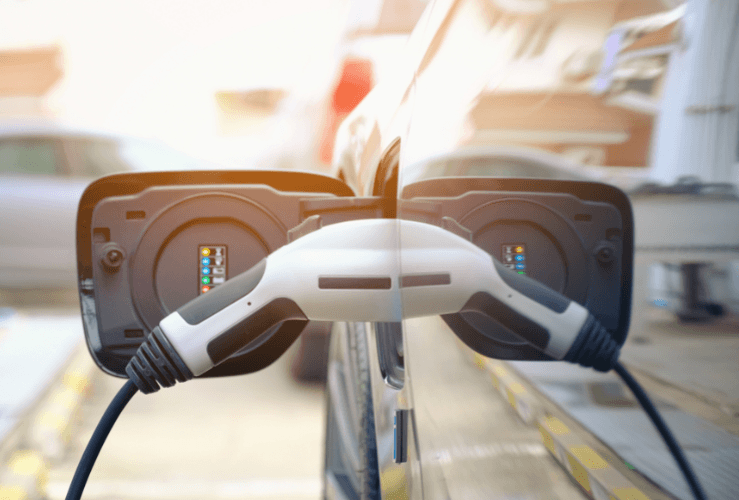Insurance for electric cars has evolved to meet the specific requirements of EVs, which are generally safer and cheaper to repair than their combustion-engine counterparts.
As EVs have become more commonplace, insurers have adapted to the EV landscape.

Is EV insurance cheaper than insurance for ICE vehicles?
Gone are the days when insurers would hike premiums because they didn’t know how safe or costly-to-repair EVs would be.
Today we know they cost less to repair and maintain than petrols or diesels - which can translate to lower premiums.
But while some insurers still charge more for EVs, premiums are likely to be the same or cheaper as time goes on, and as providers better understand the lower costs associated with comparatively simple electric drivetrains and top-of-the-line safety and collision-avoidance systems.
How easy is it to get insurance for an electric car?
Getting ecar insurance is now easier than ever - with the majority of insurers offering cover.
What does EV cover include?
EV insurance coverage options are similar to ICE (internal combustion engine) vehicles.
You can pay annually or monthly, and get cover for injury liability, fire, accidental damage, theft and more.
You can opt for fully comprehensive, third-party fire and theft, or the basic third-party cover.
Fully comprehensive insurance for EV's
Fully comprehensive is arguably the most prudent option, since it gives you near complete protection - giving you all the cover of third-party, fire and theft (and third party), plus the ability to claim for damage sustained to your own car, along with medical costs.
Somewhat counter-intuitively, ‘fully comp’ can be cheaper than third-party or third party fire and theft - because those last two options are often chosen by drivers with riskier profiles - and who are likely to pay a higher premium as a result.
What do insurers ask for when formulating a quote for an electric vehicle?
Just as with getting cover for an ICE vehicle, insurers will ask for a raft of information before arriving at a premium quote.
They'll want to know your job title, marital status, location, whether you have children and of course age and sex.
They'll also want to know about any driving convictions you may have, driving history, and details about the car itself.
How does EV insurance differ from regular ICE cover?
While EVs share many similarities with petrol and diesel cars, there are some key differences.
Your EV's battery pack (whether owned or leased) can be expensive to repair or replace - so cover for this is almost always included.
The same goes for charging cables - whether they are lost, stolen or damaged (accidentally or not) while inside or outside your vehicle.
EV insurance will also cover you if someone hurts himself after tripping over a charging cable, for example.

How much is insurance on electric cars?
Is insurance cheaper on electric cars?
In short, it could be - or should be.
Simpler mechanics and better safety systems suggest EV insurance premiums should be less than ICEs, but this isn’t always the case.
How to get a cheaper premium on your EV insurance quote?
As always when deal-hunting, shop around and get a number of electric car insurance quotes. You'll find these can vary substantially, so a little research could save you money.
Comparison sites are a good bet - but you may get a better deal if you actually phone providers up.
Some insurers offer deals on cover to those in certain circumstances - but may not advertise they do.
Calling them up may result in a premium lower than advertised on a comparison site.
If you have a drive you can park on, or you can put a more experienced driver on your policy, this may also reduce your premium.
However, only the insurer's themselves know how they calculate premiums - so spending time getting a number of quotes is the best route.
While EV motors are simpler than combustion engines, and while EV's often have cutting edge safety kit, this doesn't always translate into lower premiums.
Finding the best insurance for electric cars: Extra perks
- Does the insurer offer a courtesy car?
- Can you contact them 24/7?
- Is there cover for the theft of personal belongings such as phones and wallets?
- Will they let you keep your no claims bonus and avoid the excess if you’re hit by an uninsured driver?
- Do they offer optional excess protection?
In some cases, paying a little more for cover with these benefits may be wise.




